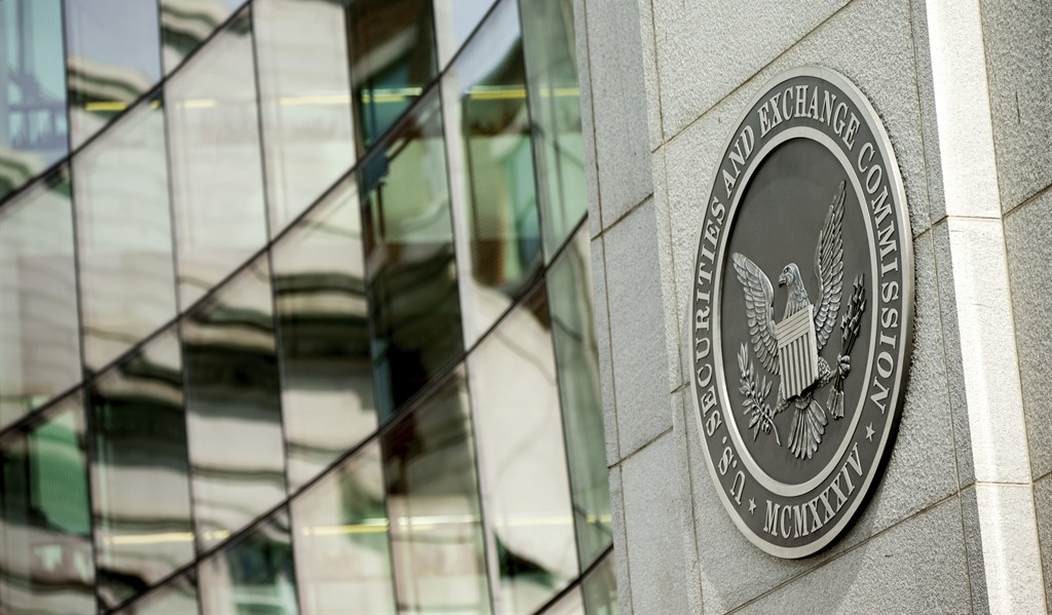President Donald J. Trump issued an Executive Order (EO) expanding access to private market investments in 401(k) retirement accounts. Now, Congress needs to rein in the powers of the Securities and Exchange Commission (SEC) to conduct investigations and initiate litigation against perfectly legal enterprises which fulfill that goal.
The Trump administration is correct to encourage more investment vehicles for retirement accounts. On August 7, 2025, the president issued an EO that declared, “it is the policy of the United States that every American preparing for retirement should have access to funds that include investments in alternative assets when the relevant plan fiduciary determines that such access provides an appropriate opportunity for plan participants and beneficiaries to enhance the net risk-adjusted returns on their retirement assets.” Thanks to President Trump, now Investment Retirement Accounts (IRAs) allow average Americans who participate in pension plans to invest in alternative assets.
The administration pointed out that “more than 90 million Americans participate in employer-sponsored defined-contribution plans.” One challenge is an overbearing SEC that has engaged in, according to the Trump administration, “burdensome lawsuits “that seek to challenge reasonable decisions by loyal, regulated fiduciaries, and stifling Department of Labor guidance issued since my first term,” which has denied millions of Americans opportunities to benefit from alternative assets. Overbearing government regulation and lawfare had stifled the expansion of IRA investment vehicles thanks to prior administrations.
The SEC was directed to develop regulations and guidance regarding private assets that include cryptocurrency, private equity, and precious metals, thereby expanding access to investment options favored by institutional investors who avoid public market volatility and have been limited in access to alternative investments. One popular investment vehicle under attack by the prior administration was retail precious metal companies. Industry leaders who sell gold and silver precious metals products, including limited mintage premium coins, common U.S. mint proof coins, and bullion, to customers who hold tangible assets in self-directed IRA accounts authorized under the Internal Revenue Code should benefit from this change.
Recommended
But more work needs to be done. The Biden administration used vague regulatory powers and civil enforcement powers to intimidate and stymie precious metals retailers and cryptocurrency companies under the guise of regulating financial markets. The SEC, in particular, exploited vague regulatory schemes and expansive interpretations of their jurisdictional mandate to initiate years-long investigations and sweeping civil cases against precious metals retailers, despite the fact that tangible gold and silver products are not securities. Such regulation by enforcement stifles innovation and diversification by tilting the odds in favor of public market products—such as precious metals ETFs—and against tangible assets such as gold and silver coins and bullion.
The SEC’s unchecked regulation through enforcement disfavored conservative investors interested in tangible holdings since the Great Recession in 2008. During that period precious metals retailers have been embraced by conservative thought leaders, politicians, and celebrities who have signed on as endorsers and spokespersons. Left unchecked, continued regulation through enforcement would undermine President Trump’s EO and provide potent political ammunition for those seeking to undermine the administration’s objective of expanding investment opportunities available to all Americans.
Some in Congress have taken note. Rep. Pete Sessions (R-TX) is looking at ideas to reform the SEC. Texas Politics reported on September 6, 2025, “Rep. Sessions revealed that Congress provided the SEC with over 100 unresolved cases spanning four years. These were raised as part of efforts to improve how investigations are handled and to avoid regulatory restrictions that impact markets.” Sessions pointed out that up to 40 percent of startup costs for new businesses in that space go to compliance. The Obama administration greatly expanded the powers of SEC enforcement attorneys resulting in prolonged investigations which lead to reputational harm for companies and provide zero due process. Basically, the SEC attorneys open an investigation then don’t take further action freezing the company under investigation. This is regulation by litigation.
Congress needs to act to fully implement the Trump EO by dialing back the expansive powers of the SEC that has served to harass and intimidate many of these companies. The SEC is not the only agency in need of some discipline, the Commodity Futures Trading Commission (CFTC) and the Federal Trade Commission (FTC) are also guilty of using litigation as a way to impose de facto regulation on the industry. Comprehensive reform of these agencies will get the government off the back of the U.S. economy to make it great again.
Peter Mihalick is a former legislative director and counsel to two Republican members of Congress.
Editor’s Note: Do you enjoy Townhall’s conservative reporting that takes on the radical left and woke media? Support our work so that we can continue to bring you the truth.
Join Townhall VIP and use the promo code FIGHT to get 60% off your VIP membership!

























Join the conversation as a VIP Member